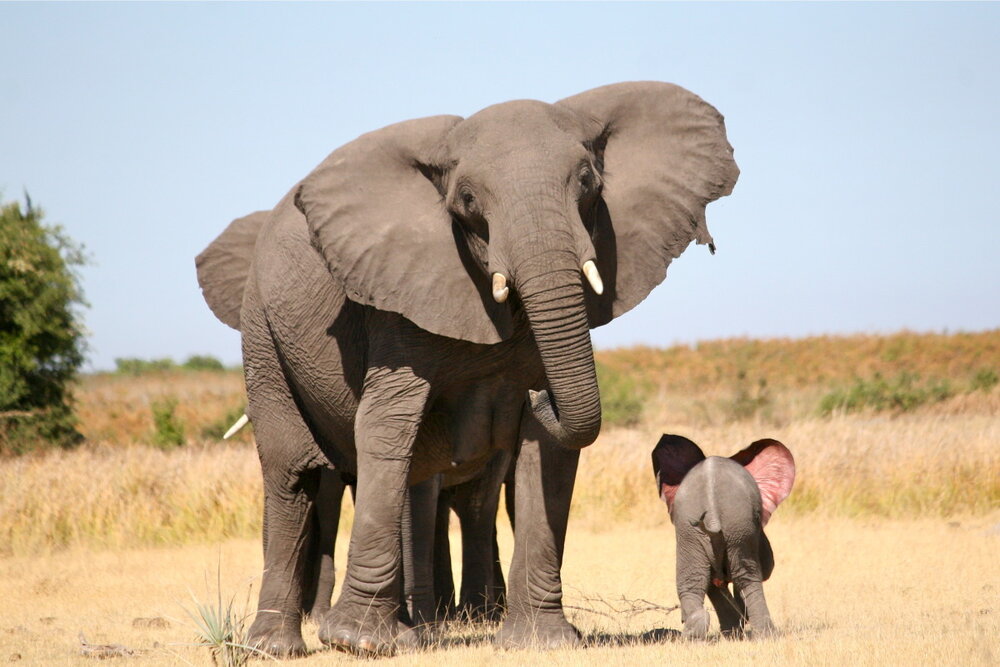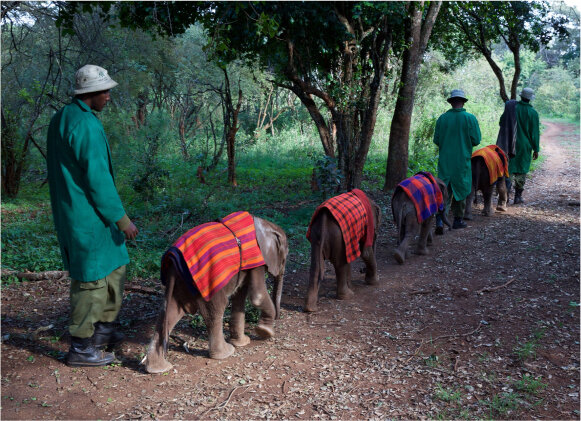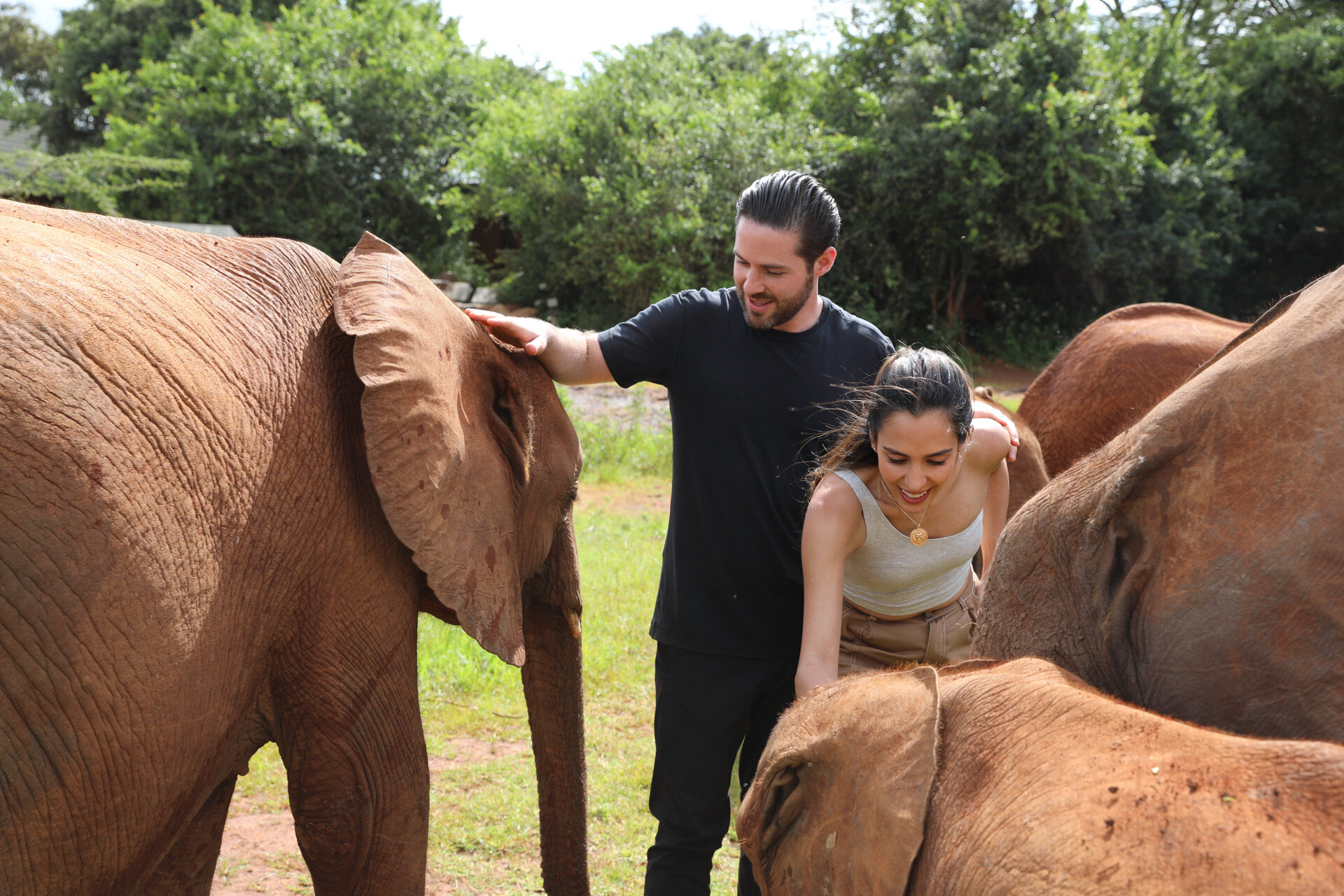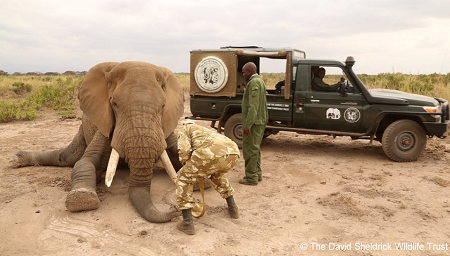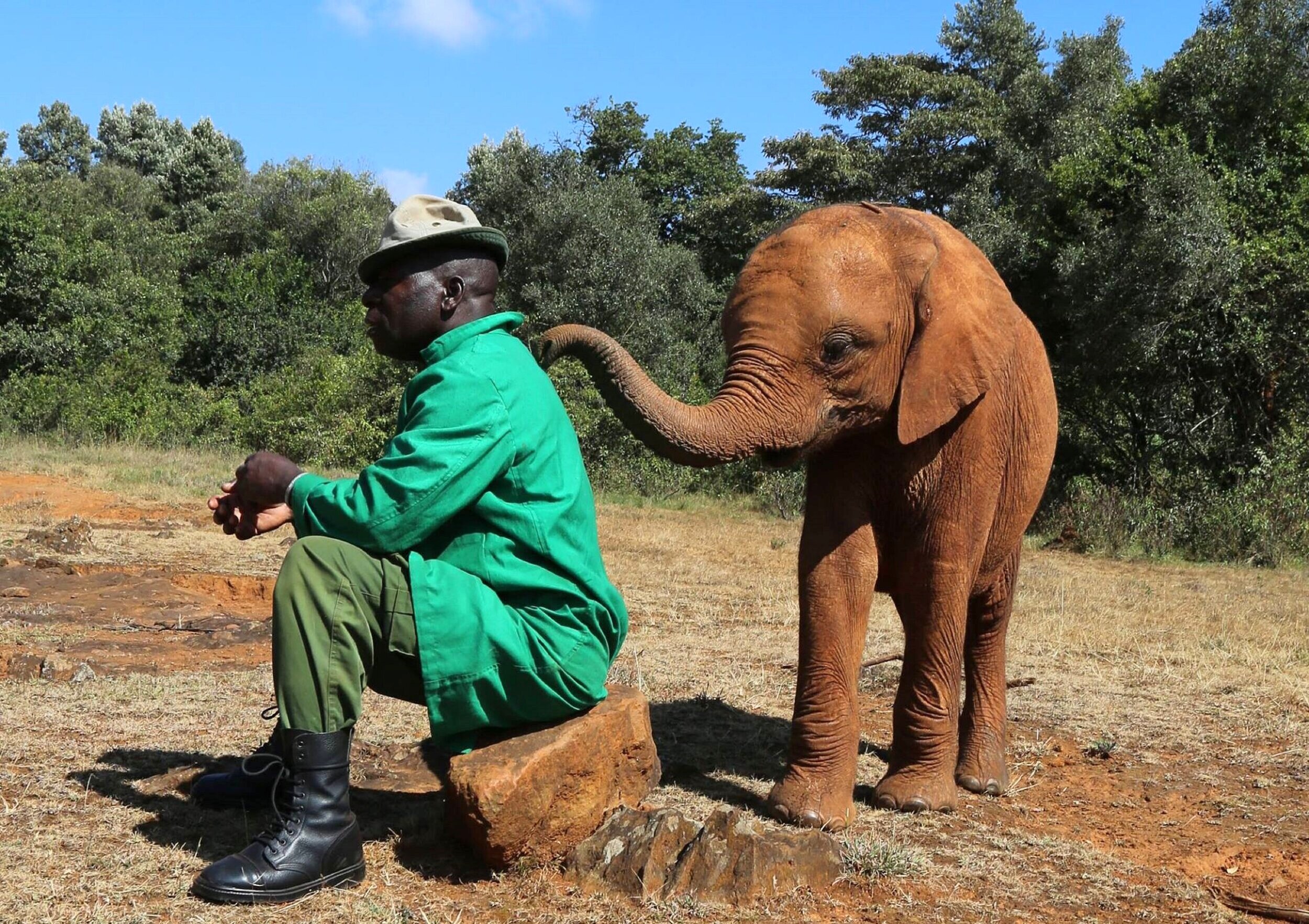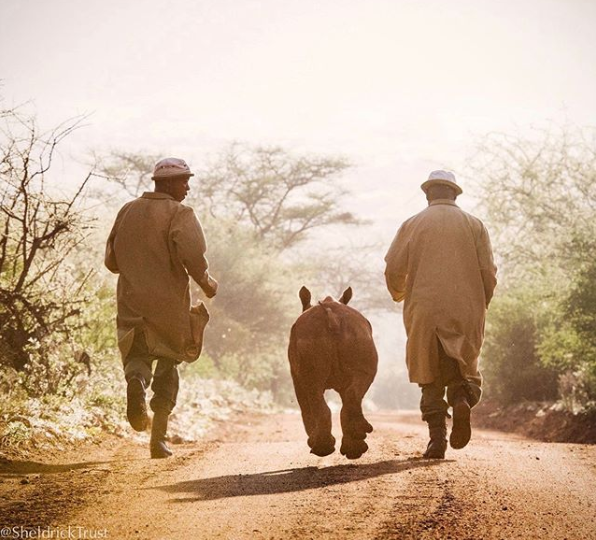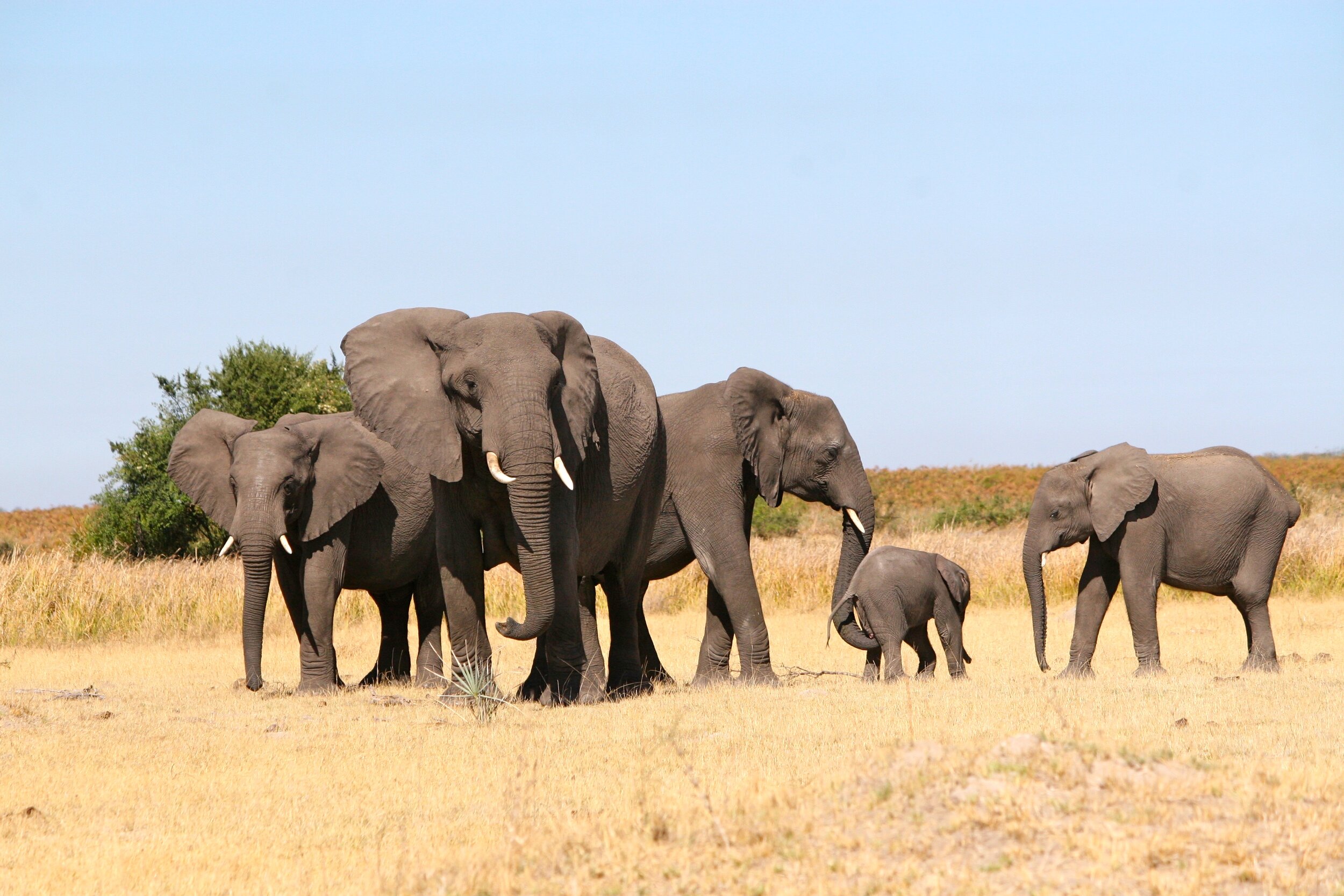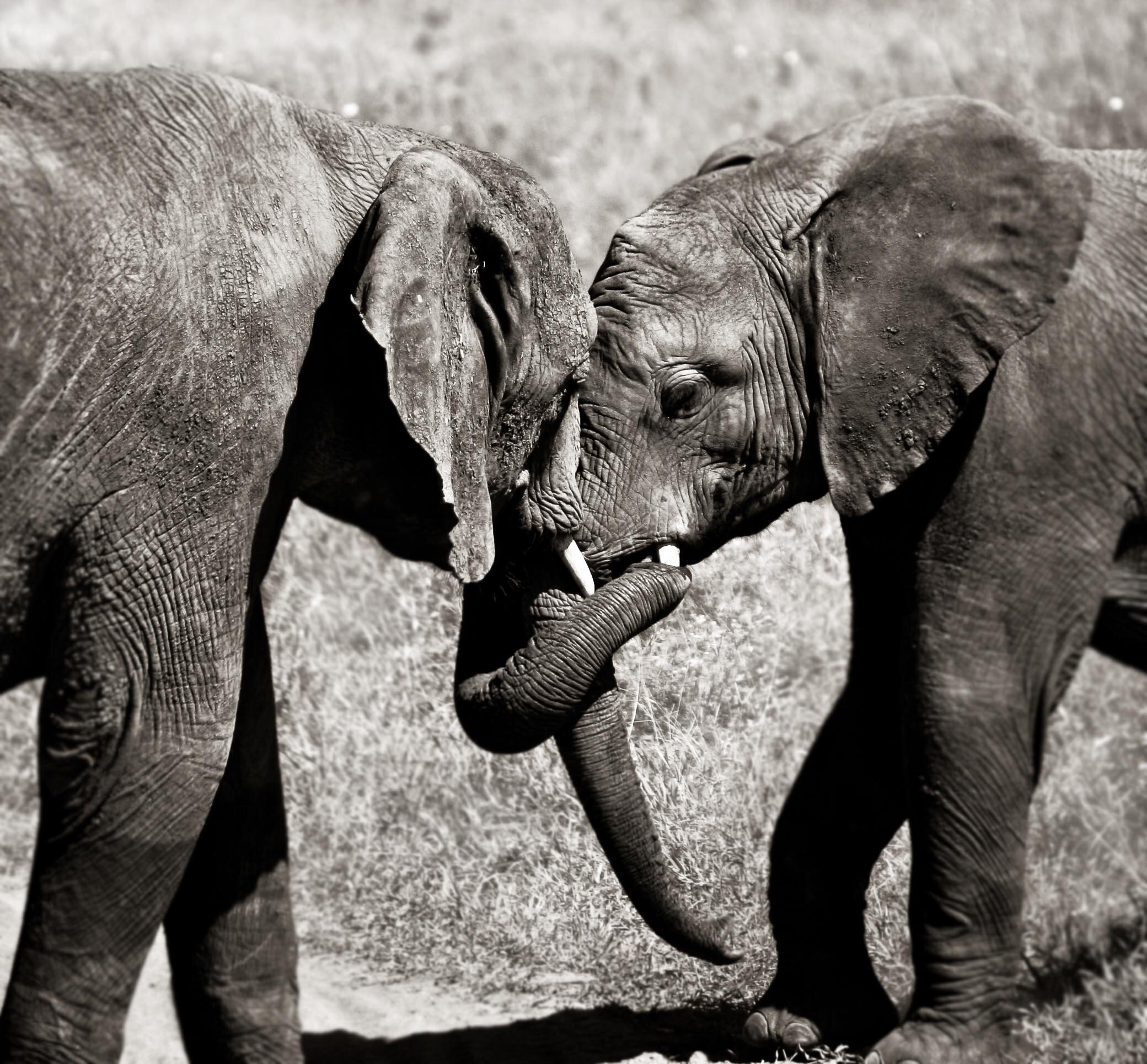David Sheldrick Wildlife Trust
Elephant conservation
ADOPT & BOTTLE FEED AN ORPHANED BABY ELEPHANT
“There is nothing more awesome than an up close and personal encounter with an African elephant calf. By visiting the David Sheldrick Wildlife Trust—the most intensive elephant and rhino relocation program in the world—Epic Road travelers have the opportunity to not only engage with these giant soulful creatures, but to also contribute to their survival. Thousands of African elephants are killed each year by poachers who illegally sell their ivory tusks, and these elephants’ offspring—who depend on their mother’s milk for the first two years of life—are often left vulnerable in the wild.
The David Sheldrick Wildlife Trust offers a haven for these orphans, along with a unique fostering program whereby travelers can adopt an elephant in advance of their trip, and then spend time with the calf in person at the Nairobi National Park where they are raised. To date more than half the infants the Trust has rescued have been successfully released back into the wild, into a new extended community of other rescued elephants. But even for travelers who don’t have the opportunity to foster, the Trust is a magical place to visit, simply for the very special experience of watching these beloved animals interact against the beautiful backdrop of the African Savannah that is their natural habitat.”
WHAT WE LOVE
Education: The David Sheldrick Wildlife Trust is the world’s foremost authority on elephant protection, and a day visit to their corner of the Nairobi National Park is an incredible opportunity to learn about conservation issues first-hand from those who search for and rescue orphans directly from the wild.
Interaction: Imagine engaging with your very own elephant! Visitors who have adopted infants can meet their calves in person, watch them play and observe the dedicated care and rehabilitation that allows these young elephants to thrive in the face of loss. Sponsors are also allowed a private visiting hour, to spent quieter time with calves as they are preparing to sleep.
Feeding: Elephant calves form extremely strong attachments to their mothers, and losing access to that bond so early in life can have tragic physical and psychological consequences. David Sheldrick himself spent 30 years perfecting a formula for that can nourish an orphaned elephant almost exactly as well as its mother’s milk, and watching a calf bond with its human caregiver at feeding time is a beautiful thing.
Nature: The David Sheldrick Wildlife Trust is located within the Nairobi National Park, a unique urban reserve that boasts an incredible range of animal and birdlife, and that is a rewarding visit in its own right. The Park also houses a deep population of both black and white Rhino, and is one of the best places to observe these amazing creatures in all of Kenya.
WHAT TO KNOW
All elephant adoption fees go directly to the care and feeding of the calf.
Elephants available for adoption are listed on the David Sheldrick Wildlife Trust website, along with their name, detailed biography and place of origin.
Sponsors regularly receive photos and updates by e-mail, and are considered lifelong members of the David Sheldrick Wildlife Trust family.
DETAILS
The David Sheldrick Wildlife Trust opens its doors to the public to view orphans between 11am – 12pm daily.
Visiting hours for elephant foster parents are at 5:00 pm daily, and private visits can be arranged as well.
“The Ithumba Camp is a small mobile tented camp located in the Tsavo East National Park in Kenya, where young elephants are reintroduced into the wild after being rescued and rehabilitated. The camp is run in partnership with the David Sheldrick Wildlife Trust, a truly incredible rescue organization and one of the most revered in the world. Ithumba Camp was specifically built to satisfy avid travelers who crave intimate and authentic interactions with majestic elephants in their natural habitat, meaning virtually every experience you have here will involve the incredible species in question. The synchronized trumpeting of an elephant herd will take place of your morning alarm, you will spend the day observing the animals as they roam about, feed and take exciting mud baths. And you won’t be watching from the distance that you might expect, you will be close enough to really grasp what makes the elephant so special, how the species interact with each other and most importantly, you’ll witness the moment where rescued baby elephants are accepted by their adoptive families. At that moment, your entire perspective of the elephant species will change.”
MORE ON ELEPHANTS, KENYA & WILDLIFE CONSERVATION
Interview with Jena Gardner, Co-Founder of Bodhi Tree Foundation, on Safeguarding a Future for Africa's Elephants
Seeing the Big Five on a Luxury Safari in Africa - the African Lion, the African Elephant, the African Leopard, the Cape Buffalo and the Rhino
25 Signature Experiences by Epic Road
Big Cat Conservation Safari in Kenya
Rhino Microchipping Safari
Top Natural Wonders of Africa
